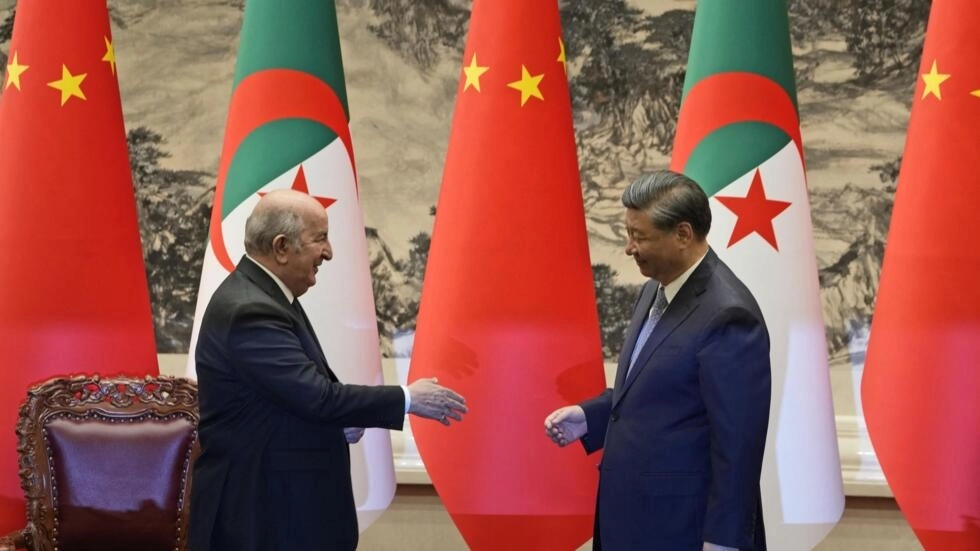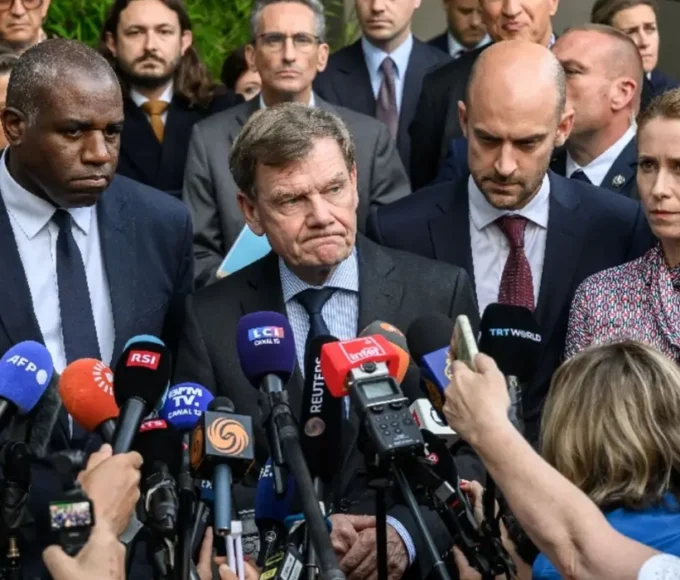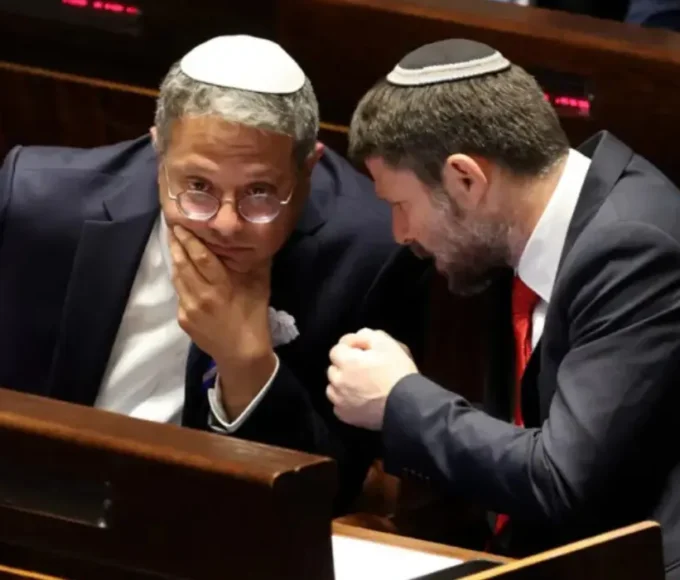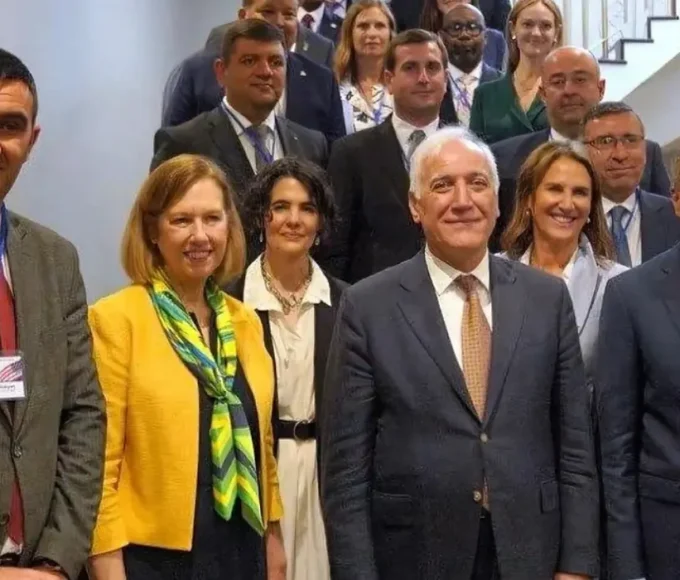After Moscow in mid-June, the Algerian president has been in Beijing since Monday, at the invitation of Xi Jinping. This first state visit by Abdelmadjid Tebboune to China, the first in fifteen years for an Algerian president, involves many challenges: economy, candidacy for the Brics, diplomacy… Less than a year and a half before the presidential election, the head of state wants to show the image of an Algeria on the offensive.
While he has still not formalized his long-awaited visit to France, Abdelmadjid Tebboune has taken the road to Beijing. After Moscow in mid-June, the Algerian president ends, on Friday July 21, a state visit to China which began on Monday at the invitation of Xi Jinping, his first since he became president.
This trip seems to be the logical continuation of his tour, because what Abdelmadjid Tebboune wants more than anything is to push the door of the very select Brics club, the economic group bringing together the emerging powers (Brazil, Russia, India, China and South Africa) that he courts in an assumed way.
When he came to power in 2019, President Tebboune did not hide his desire to restore weight to his country and mark the return of Algiers to the international scene.
“China, Algeria’s first partner ahead of France”
The purpose of this visit was first of all a way to ratify trade relations between the African country and the Chinese giant and to extend this partnership to new areas: nineteen agreements were signed between Algeria and China in the sectors of trade, telecommunications, rail transport or agriculture.
The economic partnership between the two countries is already very important, comments Brahim Oumansour, director of the Maghreb Observatory at the Institute of International and Strategic Relations (Iris). “Last year, the two countries signed a major contract for the exploitation and processing of Algerian phosphate with the creation of a joint venture between the two states. A seven billion dollar project”.
“In Algeria, China has won several infrastructure projects in the past”, continues the researcher, listing the colossal projects, from the expansion of Algiers airport, to the east-west highway, through the construction of the new building of the Ministry of Foreign Affairs.
In the military sector, China is the second largest arms supplier after Russia.
This visit to China “is part of the desire to strengthen this Sino-Algerian economic cooperation which has continued to intensify over the past twenty years”, explains Brahim Oumansour. “China is now Algeria’s leading partner ahead of France with 17% of the Algerian market share for China and about ten for France.”, he explains.
Algiers is seeking to revitalize its economy after a long period of recession and is showing a desire to push Chinese investment in order to “diversify its production in Algeria to get out of its dependence on hydrocarbons, which represent 60% of income and 97% of its exports”, concludes the Iris researcher.
What interests for China?
Beijing also has something to learn from this meeting: to diversify its sources of energy supply. China produces gas itself, but not enough for its consumption and its imports represent more than 40% of its needs.
In May, executives from Sonatrach, the Algerian national oil and gas company, had already traveled to China to discuss energy cooperation, according to the Algerian public news agency, Algérie Presse Service and, above all, to sign a juicy gas delivery contract with their Chinese partners.
However, according to Brahim Oumansour, it is not only for gas that China has a particular interest in Algeria. First, “the country is full of minerals such as phosphate, iron and rare earths”, explains the expert, but above all “Algeria is at the gates of both Africa and the European market, which is very strategic in its project for a new silk road”, analyzes the researcher, referring to the huge Chinese project to build port, rail and land infrastructure in the Mediterranean basin.
Objective Brics
One month before the summit of the group of emerging powers and after the Russian green light, Abdelmadjid Tebboune came to seek Beijing’s support for his membership of the Brics.
It is first and foremost a personal issue for the Algerian president, according to Stéphane Ballong, Africa editor at France 24. “The main reason is political: President Tebboune is coming to the end of his term, there is an election in December 2024, so it is very important for him to restore his country’s image internationally.”
Beijing’s support is all the more important as Algiers’ candidacy suffers from a few weaknesses. Economically, Algeria has some catching up to do to be able to push the door of the club of the great emerging powers. “If we compare Algeria today to the Brics, in terms of industrialization and international trade, the country is a small player compared to the powers of the Brics”, describes Stéphane Ballong. “For example, in 2021, Algerian exports were worth $19 billion and South Africa, which is the smallest Brics exporter, was doing three or even four times more than Algeria.”
The director of the Maghreb Observatory, Brahim Oumansour, also concedes weaknesses in the Algerian file: “There is a weakness in local production and structural reforms to be made (banking, port, airport, rail infrastructure, etc.). In addition, the country has delays in integrating the world market, particularly with regard to currency exchange”.
“Algeria has very good relations with Russia, China and South Africa. It remains to convince the Brazilians, with whom the Algerians have relations that can be described as friendly within the framework of the solidarity of the countries of the south”, analyzes Brahim Oumansour. “But for the Indians and the Brazilians, it will have to provide guarantees of important structural reforms if it wants to enter the Brics.”, assures the researcher, concluding in these terms: “Algeria has its chances, but it is not won in advance”.
The Algerian candidacy in the Brics is therefore not certain to succeed but for Stéphane Ballong, the country would have its chances in the face of the desire to expand the Brics to Africa. It is also reflected in the invitation of non-member countries to their virtual summit, as with Egypt and Senegal in 2022. This year, Algiers was invited.
The “non-aligned” club
With the Brics, Algeria wants to show its willingness to counterbalance the dominant Western economic powers. “This is also a bit what defines the Brics group”, continues the Africa specialist, “this desire to get out of a unipolar world represented by the Bretton Woods agreements, [accords intended to organize the international monetary system after the Second World War, note], and to create a multipolar world. ”
“Abdelmadjid Tebboune also expressed this desire”, continues Stéphane Ballong, “when he presented his candidacy for the Brics, to get out of a unipolar world and create a new world order”.
And it is for this reason that Algiers has always maintained good relations both with several European countries and with Moscow, despite Russia’s invasion of Ukraine. Algeria was also among the twenty African countries which had abstained during the vote of March 2, 2022 at the UN aimed at sanctioning the Russian intervention in Ukraine.
On June 15, the Algerian president, on a state visit to Russia, appeared alongside Vladimir Putin. An “affirmation on the part of Algiers not to give in to Western pressure and to maintain its posture of balance”, analyzes Brahim Oumansour. “Algeria has agreed to strengthen its gas deliveries to Europe, via Italy, while maintaining its partnerships and a distance from Ukraine”.
This article is originally published on france24.com









